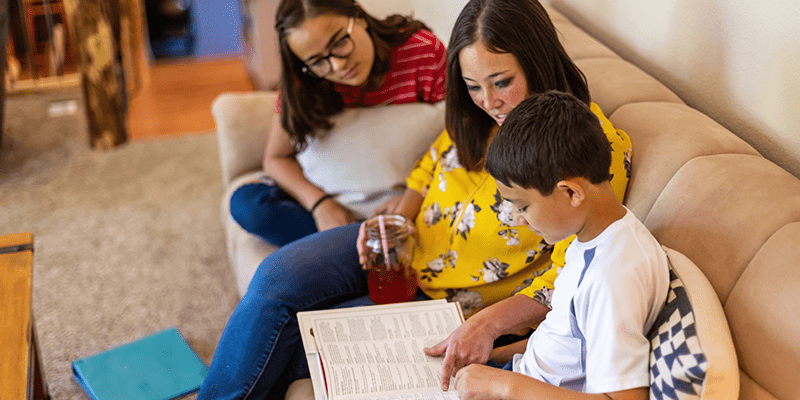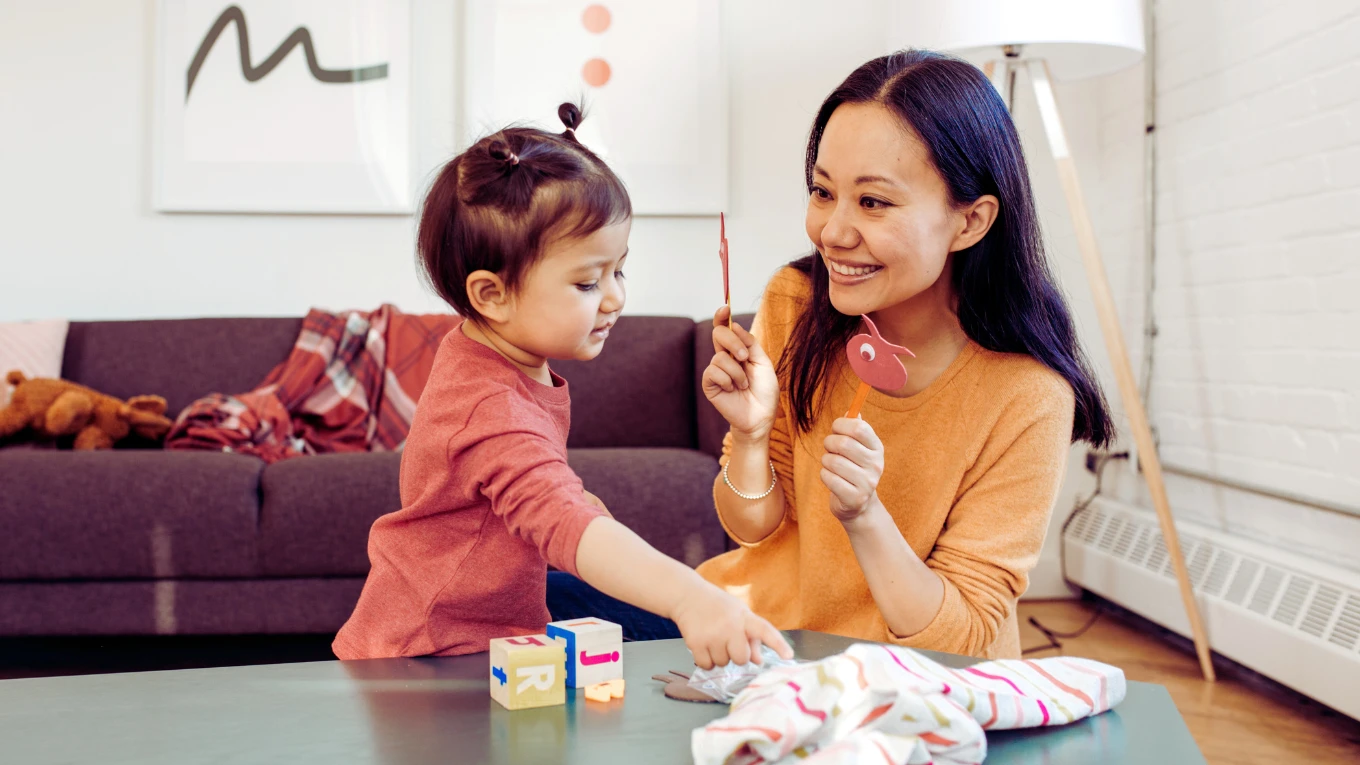10 Best Strategies for Stress-Free Co-Parenting Post-Divorce
Managing post-divorce co-parenting can feel overwhelming, but you can make it smoother. Effective communication, like active listening and using ‘I’ statements, is key. Stick to consistent schedules and show respect in your interactions. Setting healthy boundaries and focusing on your child’s well-being creates stability. Support each other and be flexible when needed. Remember to care for yourself to stay resilient. Consider using co-parenting apps for organization. Seeking support can ease challenges and improve dynamics. Embrace these strategies to create a stress-free co-parenting journey.
Key Takeaways
- Prioritize child’s well-being through open communication and collaboration.
- Establish healthy boundaries and respectful co-parenting practices.
- Utilize co-parenting apps for organization and coordination.
- Practice self-care for mental health and resilience.
- Seek co-parenting support for effective communication and conflict resolution.
Effective Communication

Maintaining open and clear communication with your co-parent is essential for managing shared responsibilities and ensuring a harmonious co-parenting relationship. One key aspect of effective communication is active listening. When engaging in discussions with your co-parent, make sure to actively listen to their perspectives and concerns without interrupting. By demonstrating active listening, you show respect for their opinions and create a more cooperative atmosphere for problem-solving.
Effective problem-solving is another vital component of successful co-parenting communication. When conflicts arise, approach them with a focus on finding solutions that benefit the children. Instead of placing blame or getting defensive, work together with your co-parent to brainstorm possible resolutions.
Keep the lines of communication open, honest, and respectful throughout the process. By prioritizing effective problem-solving strategies, you can navigate challenges more smoothly and strengthen your co-parenting bond. Remember, communication is a two-way street, and by actively engaging in it, you pave the way for a healthier co-parenting relationship.
Consistent Schedules

To establish a smooth co-parenting dynamic, ensuring consistent schedules for both parents and children is key. Shared calendars can be a great tool to keep everyone on the same page. Make sure to include all important dates, appointments, and commitments so that both parents are aware of the schedule.
Routine consistency is vital for children, as it provides them with a sense of stability and predictability during a time of change.
When creating schedules, consider the logistics of drop-offs, pick-ups, and parenting time changes. Clear communication about any changes or adjustments is essential to avoid misunderstandings or conflicts.
Flexibility is also important, as unexpected events may arise that require adjustments to the schedule. By working together and being understanding of each other’s responsibilities and commitments, co-parents can create a harmonious environment for their children.
Respectful Co-Parenting
Show genuine consideration for your co-parent’s feelings and perspectives to foster a respectful co-parenting relationship. Setting clear co-parenting boundaries is essential for maintaining mutual respect.
Effective communication plays a key role in building and maintaining this respect. Remember to actively listen to your co-parent, acknowledging their thoughts and feelings even if you may not agree with them.
Shared responsibilities are another aspect that can promote respect in co-parenting. Make sure to divide tasks fairly and communicate openly about expectations. Respect each other’s time and commitments, being flexible when necessary. Recognize and appreciate each other’s contributions to parenting, as this can strengthen your co-parenting bond.
When disagreements arise, approach them with a problem-solving mindset. Avoid blaming or criticizing your co-parent; instead, focus on finding solutions that benefit your children.
Healthy Boundaries
Establishing healthy boundaries is essential for maintaining a harmonious co-parenting relationship. Remember to establish clear communication boundaries to avoid misunderstandings and conflicts.
Consistent rule-setting guidelines and respecting each other’s personal space can help create a stable and supportive environment for your children.
Clear Communication Boundaries
Establishing clear communication boundaries is vital for maintaining a healthy co-parenting relationship. When it comes to boundaries and expectations, it’s essential to establish guidelines for how communication will occur.
Setting privacy boundaries is equally significant; respecting each other’s privacy shows mutual trust and fosters a more positive co-parenting dynamic.
To maintain clear communication boundaries, start by openly discussing and agreeing on how often and through which channels communication will take place. Establishing guidelines for the type of information that should be shared and the tone of communication can prevent misunderstandings and conflicts.
Remember, clear boundaries help create a sense of predictability and stability for both you and your co-parent.
Respecting each other’s privacy involves acknowledging personal space and refraining from prying into each other’s personal lives. By setting clear guidelines around privacy, you demonstrate respect for each other’s individuality and create a more harmonious co-parenting environment.
Effective communication boundaries not only reduce stress but also lay the foundation for a successful co-parenting relationship.
Consistent Rule-Setting Guidelines
To maintain a harmonious co-parenting relationship, it’s important to establish consistent guidelines for setting rules that promote healthy boundaries. When it comes to co-parenting teamwork, rule consistency is key. By working together with your co-parent, you can create a unified front and provide stability for your children. Start by openly discussing and agreeing on the rules that both households will follow. Consistency in expectations, consequences, and rewards between homes can help reduce confusion and stress for everyone involved.
Be flexible and willing to adjust rules as needed, but aim to present a united front to your children. This shows them that even though you’re no longer together, you’re still a team when it comes to parenting. Remember, setting boundaries isn’t about control; it’s about creating a safe and nurturing environment for your children to thrive.
Respect Personal Space
Maintaining healthy boundaries and respecting each other’s personal space is essential in nurturing a positive co-parenting dynamic. Personal boundaries play a significant role in ensuring that both parents feel respected and valued in the co-parenting relationship. It’s vital to communicate openly about your personal boundaries and space management preferences to avoid misunderstandings and conflicts.
When co-parenting post-divorce, remember that personal space extends beyond physical boundaries. Emotional boundaries are equally important. Acknowledge each other’s feelings and give space when needed, allowing for individual processing and reflection. By respecting personal boundaries, you show empathy and create a supportive environment for both yourself and your co-parent.
Effective space management involves setting clear expectations and boundaries regarding shared spaces, schedules, and parenting responsibilities. Establishing these boundaries early on can prevent potential disagreements and promote a harmonious co-parenting dynamic.
Child-Centered Approach

Consider prioritizing your child’s well-being and emotional needs when implementing a child-centered approach to co-parenting. Viewing situations from your child’s perspective can guide you in making decisions that focus on their best interests. Parental collaboration is key in ensuring effective co-parenting that revolves around the child’s well-being. Communicate openly with your co-parent, listen actively to each other’s concerns, and work together to create a nurturing environment for your child.
Effective co-parenting involves putting aside personal differences and focusing on what’s best for your child. Keep lines of communication open and respectful, and aim to maintain consistency in routines and rules between households. By emphasizing your child’s needs above all else, you can create a sense of stability and security for them during the period of change.
Conflict Resolution Strategies

When disagreements arise, finding important conflict resolution strategies can help you navigate co-parenting challenges with your child’s well-being as the top priority. Effective communication plays a vital role in resolving conflicts amicably.
Start by actively listening to the concerns and perspectives of your co-parent. Acknowledge their feelings and viewpoints before expressing your own. Use ‘I’ statements to convey your thoughts without sounding accusatory, fostering a more open and understanding dialogue.
Practice empathy and try to see things from the other person’s point of view. Avoid blaming or criticizing each other, focusing instead on finding mutually beneficial solutions.
Consider seeking the help of a mediator if discussions become too heated or if you reach an impasse. Mediators can provide an unbiased perspective and facilitate productive communication between both parties.
Remember that conflict is a natural part of any relationship, but how you choose to address and resolve it can greatly impact your co-parenting dynamic. By prioritizing effective communication and respectful conflict resolution strategies, you can create a healthier co-parenting environment for your child to thrive.
Supportive Co-Parenting
Let’s focus on fostering positive communication and trust in your co-parenting relationship.
By practicing active listening and expressing your thoughts openly but respectfully, you can create a supportive environment for both you and your co-parent.
Building trust together through consistency and reliability will lay a strong foundation for effective co-parenting.
Positive Communication Techniques
Maintaining a positive and open line of communication with your co-parent is essential for creating a supportive co-parenting environment.
Practice active listening when engaging in conversations with your co-parent. This means truly focusing on what they’re saying without interruptions, showing empathy, and validating their feelings. By actively listening, you’re fostering an environment of understanding and respect.
Open communication is key to avoiding misunderstandings and conflicts. Be transparent about schedules, important events, and any changes that may impact your co-parenting arrangements. Keep each other informed to guarantee smooth coordination and to build trust.
When discussing co-parenting matters, choose your words carefully and aim for a respectful tone. Even when disagreements arise, aim to maintain a positive and constructive dialogue.
Building Trust Together
To foster a supportive co-parenting relationship, prioritize building trust together through consistent and transparent communication. Trust is the cornerstone of successful co-parenting post-divorce.
Engage in trust-building activities and bonding experiences with your co-parent and children. These shared moments create a sense of unity and reliability, reinforcing the trust between all parties involved.
Open communication is key to nurturing trust. Be open, honest, and vulnerable with your co-parent. Share your thoughts, concerns, and feelings openly, creating a safe space for both of you to express yourselves without judgment. Essential listening is important in this process; show empathy and understanding towards your co-parent’s perspective.
Find common ground and mutual understanding through collaborative decision-making. By involving each other in the decision-making process, you both feel valued and respected. This collaborative approach strengthens the trust between co-parents and promotes a harmonious co-parenting dynamic.
Flexibility and Adaptability
Being open to change and willing to adjust your co-parenting plan as needed is essential for maintaining a harmonious and stress-free co-parenting relationship. Flexible parenting and adaptability in co-parenting are key components in navigating the challenges that come with raising children post-divorce.
Coping with change and adjusting expectations are skills that will serve you well in this journey. It’s important to recognize that circumstances may shift, schedules may need to be modified, and unexpected events may arise. Embracing a flexible mindset can help you better handle these situations.
Communicate openly with your co-parent about any necessary changes and work together to find solutions that benefit your children.
Self-Care Practices

Prioritize your well-being by incorporating self-care practices into your routine to help you navigate the challenges of co-parenting with more resilience and balance.
Establish self-care routines that focus on nurturing your mental health. This could involve setting aside time for activities you enjoy, such as reading, exercising, or meditating. Engaging in these practices can help reduce stress levels and improve your overall well-being.
When feeling overwhelmed, remember to utilize stress relief and relaxation techniques. Deep breathing exercises, yoga, or even a short walk outside can do wonders for resetting your mind and body.
Taking care of yourself isn’t selfish but essential for your ability to co-parent effectively.
Incorporating self-care practices into your daily life can support your mental health and provide you with the strength needed to navigate co-parenting challenges. Remember, by taking care of yourself, you’re better equipped to support your children during this time of change.
Utilizing Co-Parenting Apps

When it comes to co-parenting, using apps can be a game-changer. These tools offer benefits like streamlined communication and efficient scheduling, making coordination easier for both parents.
Let’s explore how these features can help you navigate co-parenting with more ease and less stress.
App Benefits for Co-Parents
Explore how utilizing co-parenting apps can streamline communication and organization, making the process of co-parenting more efficient and collaborative for both parties. Co-parenting apps offer a range of benefits, from shared calendars to effective communication tools. To enhance your co-parenting experience, consider using apps like OurFamilyWizard, 2houses, or coParenter, which are popular recommendations in this space.
Shared calendars within these apps allow you to coordinate schedules, share important dates, and track appointments effortlessly. This feature eliminates confusion and guarantees both parents stay informed about their children’s activities and commitments.
Additionally, communication tools like messaging platforms or shared document storage simplify discussions about co-parenting responsibilities, reducing misunderstandings and conflicts.
Features Enhancing Communication
Consider incorporating the messaging platforms and shared document storage features of co-parenting apps to streamline communication and reduce misunderstandings in your co-parenting journey. These apps offer a convenient way to engage in effective listening and open communication with your co-parent, fostering a healthy dialogue. By utilizing these tools, you can set boundaries and establish clear expectations, creating a structured communication channel that prioritizes the well-being of your children.
Co-parenting apps provide a centralized platform where both parties can collaborate on schedules, share important information, and make joint decisions efficiently. This accessibility promotes transparency and minimizes the chances of miscommunication or missed messages. Additionally, these apps often come with features like calendar syncing, expense tracking, and mediation tools, further enhancing your ability to co-parent successfully.
Co-Parenting Schedule Management
To effectively manage your co-parenting schedule, leverage the features of co-parenting apps for seamless coordination and organization. Co-parenting apps offer a range of tools to simplify scheduling, such as shared calendars that allow both parents to input events, appointments, and activities. By utilizing these shared calendars, you can avoid miscommunications and guarantee that both parents are on the same page regarding parenting responsibilities.
If you find yourselves struggling with scheduling conflicts or maintaining consistency in your co-parenting routine, consider seeking co-parenting support through therapy or attending scheduling workshops. These resources can provide valuable insights and strategies to help you navigate challenging situations and improve your co-parenting relationship.
Frequently Asked Questions
How Can I Handle Unexpected Emergencies or Last-Minute Changes in the Co-Parenting Schedule?
When handling unexpected emergencies or last-minute changes in the co-parenting schedule, remember to communicate openly. Have emergency plans in place and be flexible. Coping strategies include staying calm, prioritizing your child’s well-being, and working together for solutions.
What Should I Do if My Ex-Partner Is Not Following the Agreed Co-Parenting Plan?
If your ex-partner isn’t following the co-parenting plan, first try open communication. If issues persist, consider legal options or mediation. Establish coping mechanisms to manage stress. Prioritize your child’s well-being through consistent, respectful interactions.
How Do I Navigate Introducing a New Partner to My Child in a Co-Parenting Situation?
When introducing a new partner to your child in a co-parenting setup, consider relationship boundaries and your child’s feelings. Timing is important, so communicate openly with your ex to guarantee a smooth and supportive shift for everyone involved.
Are There Specific Guidelines for Discussing Sensitive Topics With My Ex-Partner?
When discussing sensitive topics with your ex-partner, prioritize setting communication boundaries for healthy interactions. Offer emotional support, maintain respect, and establish clear guidelines for discussions. Healthy communication is crucial to managing these conversations effectively.
How Can I Ensure Consistency in Rules and Discipline Between Two Households?
To guarantee consistency in rules and discipline between two households, prioritize open communication strategies with your ex. Establish clear co-parenting agreements and set boundaries together. This collaborative approach can help create a unified parenting style for your children.
Conclusion
Remember, co-parenting after divorce can be challenging, but by employing these strategies, you can create a more peaceful and harmonious environment for your children.
Effective communication, respect, and flexibility are key to maneuvering through this new chapter in your family’s life.
Remember to prioritize self-care and seek support when needed.
By working together with your ex-spouse in a positive and child-centered way, you can create a stress-free co-parenting dynamic that benefits everyone involved.
You’ve got this!

Chad Adan Kace, a young dad from Vermont, shares his parenting journey with a touch of humor and lots of love. Father to a lively baby, he explores the joys and challenges of fatherhood through his stories.







